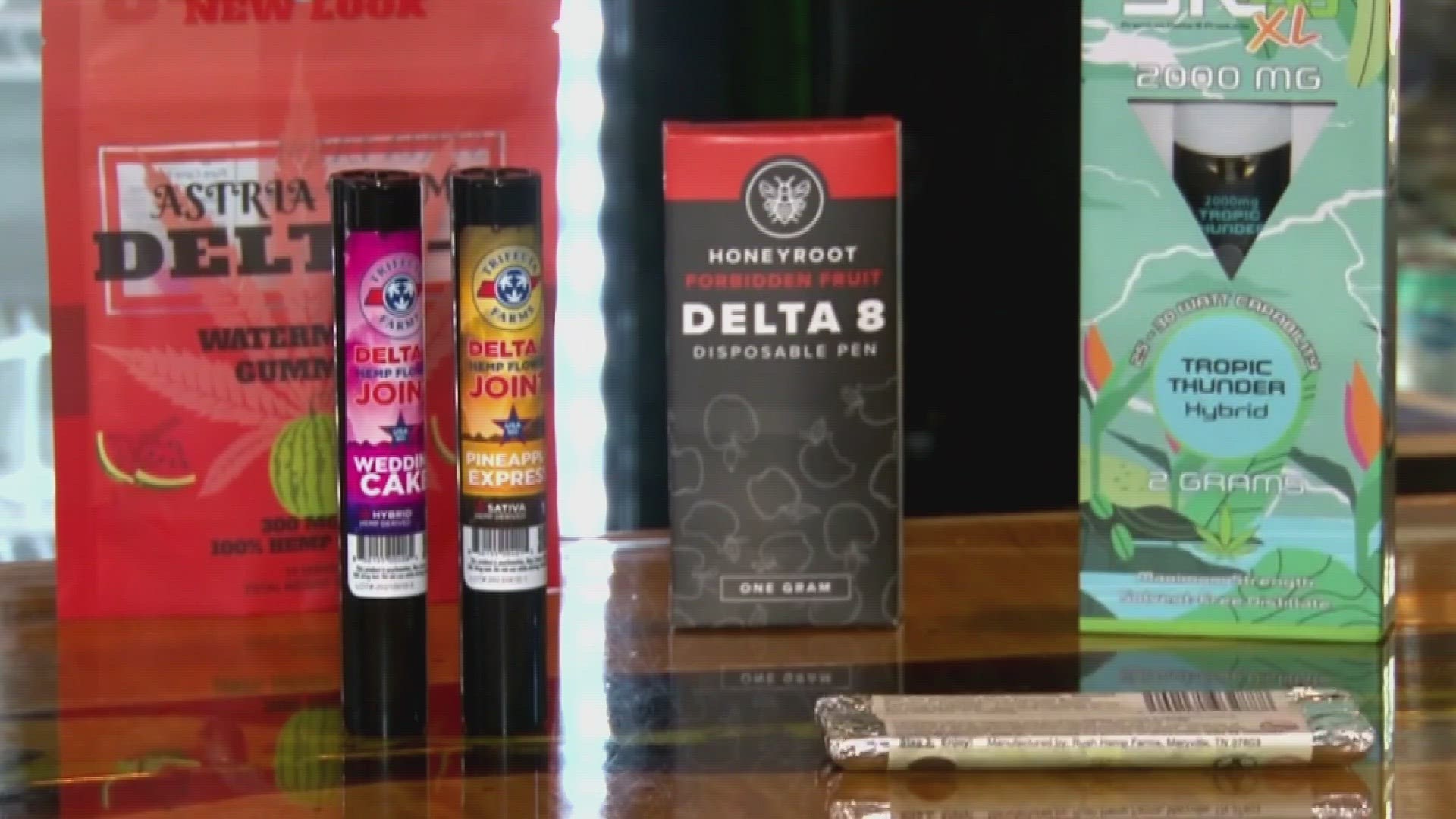NASHVILLE, Tenn. — As delta-8 THC products become more common, the Tennessee Poison Center at Vanderbilt University is getting more calls about exposures to the substance.
Data showed the center received about 115 total calls from February 2021 to February 2022, with about 32 affecting kids under 6.
From February 2022 to February 2023, the center received 248 calls about delta-8 exposures with 110 affecting kids under 6.
"This is a huge increase," Tennessee Poison Center Medical Director Dr. Rebecca Bruccoleri said. "What's very alarming is that it's more than three times the amount of children ages 5 and under."
Delta-8 products contain concentrated forms of a legal cannabinoid chemical, which is derived from hemp. It can affect people — including children — in ways similar to marijuana.
"Because they look so close to candy, they're incredibly dangerous for our small patients," Dr. Bruccoleri said. "Really, my number one thing is they need to be up, locked and away from children."
She said the side effects vary but can include vomiting, diarrhea and agitation. Some of the most concerning symptoms happen in children.
"I'm very concerned about seeing something called respiratory depression in children, where they're not breathing as well," she said. "Another thing that can be potentially deadly is they become so sleepy that they're not protecting their airway so they won't be able to breathe properly."
She said delta-8 can be 'incredibly dangerous' because it isn't regulated in Tennessee.
"A gummy can say it's 50 milligrams, but it could be way more than that," she said. "It could be less, but the concerning thing is what if it's way more than that?"
Dr. Bruccoleri said the Tennessee Poison Center is available 24/7 for advice at 1-800-222-1222. It is staffed with nurses, physicians, pharmacists and medical toxicologists to assist people with exposures.
However, any person experiencing serious symptoms should call 911 immediately.
"Symptoms of distress include difficulty breathing, blue skin, being unresponsive, having a seizure, all of those things," she said. "If the person does not seem to be showing overt symptoms, you can call the poison center and we can give you advice on what to do next."

